Decoy Zero Read online
D E C O Y Z E R O
(AN AGENT ZERO SPY THRILLER—BOOK 8)
J A C K M A R S
Jack Mars
Jack Mars is the USA Today bestselling author of the LUKE STONE thriller series, which includes seven books. He is also the author of the new FORGING OF LUKE STONE prequel series, comprising three books (and counting); and of the AGENT ZERO spy thriller series, comprising ten books (and counting).
Jack loves to hear from you, so please feel free to visit www.Jackmarsauthor.com to join the email list, receive a free book, receive free giveaways, connect on Facebook and Twitter, and stay in touch!
Copyright © 2020 by Jack Mars. All rights reserved. Except as permitted under the U.S. Copyright Act of 1976, no part of this publication may be reproduced, distributed or transmitted in any form or by any means, or stored in a database or retrieval system, without the prior permission of the author. This ebook is licensed for your personal enjoyment only. This ebook may not be re-sold or given away to other people. If you would like to share this book with another person, please purchase an additional copy for each recipient. If you’re reading this book and did not purchase it, or it was not purchased for your use only, then please return it and purchase your own copy. Thank you for respecting the hard work of this author. This is a work of fiction. Names, characters, businesses, organizations, places, events, and incidents either are the product of the author’s imagination or are used fictionally. Any resemblance to actual persons, living or dead, is entirely coincidental.
Jacket image Copyright oOhyperblaster, used under license from Shutterstock.com.
BOOKS BY JACK MARS
LUKE STONE THRILLER SERIES
ANY MEANS NECESSARY (Book #1)
OATH OF OFFICE (Book #2)
SITUATION ROOM (Book #3)
OPPOSE ANY FOE (Book #4)
PRESIDENT ELECT (Book #5)
OUR SACRED HONOR (Book #6)
HOUSE DIVIDED (Book #7)
FORGING OF LUKE STONE PREQUEL SERIES
PRIMARY TARGET (Book #1)
PRIMARY COMMAND (Book #2)
PRIMARY THREAT (Book #3)
PRIMARY GLORY (Book #4)
AN AGENT ZERO SPY THRILLER SERIES
AGENT ZERO (Book #1)
TARGET ZERO (Book #2)
HUNTING ZERO (Book #3)
TRAPPING ZERO (Book #4)
FILE ZERO (Book #5)
RECALL ZERO (Book #6)
ASSASSIN ZERO (Book #7)
DECOY ZERO (Book #8)
CHASING ZERO (Book #9)
VENGEANCE ZERO (Book #10)
ZERO ZERO (Book #11)
Agent Zero - Book 7 Summary (recap)
Having been forced back into the agency’s service, CIA Agent Kent Steele is put on the trail of a mysterious ultrasonic weapon, pursuing a radical group with an unknown agenda and in possession of a silent but deadly machine nearly impossible to track. Yet new memories plague his mind with old secrets. Though tormented by his shadowy past, Agent Zero must put the safety of millions above all else—though it may be too late for him to save himself.
Agent Zero: While pursuing the insurgent group responsible for ultrasonic attacks around the United States, old memories from Zero’s haunted past resurfaced in the form of assassinations he carried out early in his CIA career. Uncertain if they were real or fantasy, Zero sought help from the Swiss neurologist Dr. Guyer, who gave a grim diagnosis: deterioration was evident in Zero’s brain, and though the speed at which it would proceed is unclear, Guyer believes it will eventually kill him. Zero kept the news to himself, deciding to instead live whatever life he has left to the fullest with his daughters and a rekindled relationship with Maria.
Maria Johansson: Having defied orders from both the CIA and the president, Maria stepped down from her position as deputy director and returned to the post of special agent. Through Zero’s own admission, she is aware of recent memory issues he’s been having, as well as his perceived past as an assassin.
Maya Lawson: After an attempted assault by three boys in a West Point locker room, Maya left the military academy—though not before learning that her younger sister Sara had gone missing from the rehab facility she’d been sent to. Maya rescued her from beneath a boardwalk mere moments before an attempted trafficking and brought her back home. Maya battles to reconcile the obvious darkness in herself, and whether or not the path she’s chosen is the best one for her.
Sara Lawson: Still struggling with her drug dependency, Sara was checked into a Virginia Beach rehab facility by her father. She escaped on her first night there and, her addiction getting the better of her, threw caution to the wind in search of a fix. After a harrowing near-trafficking incident under a boardwalk, Sara was rescued by Maya and Alan Reidigger and brought home.
Mischa: The only survivor of the insurgent group behind the ultrasonic attacks, Mischa is a twelve-year-old Russian girl who was indoctrinated from a very young age and trained as a spy and killer. Zero and Maria apprehended her and turned her over to the CIA for holding.
President Jonathan Rutledge: The former Speaker of the House ascended to the Oval Office after the impeachment of his predecessors. Though he considered stepping down, Rutledge was bolstered by Zero’s perseverance and decided to remain in office and do whatever good he can.
CONTENTS
PROLOGUE
CHAPTER ONE
CHAPTER TWO
CHAPTER THREE
CHAPTER FOUR
CHAPTER FIVE
CHAPTER SIX
CHAPTER SEVEN
CHAPTER EIGHT
CHAPTER NINE
CHAPTER TEN
CHAPTER ELEVEN
CHAPTER TWELVE
CHAPTER THIRTEEN
CHAPTER FOURTEEN
CHAPTER FIFTEEN
CHAPTER SIXTEEN
CHAPTER SEVENTEEN
CHAPTER EIGHTEEN
CHAPTER NINETEEN
CHAPTER TWENTY
CHAPTER TWENTY ONE
CHAPTER TWENTY TWO
CHAPTER TWENTY THREE
CHAPTER TWENTY FOUR
CHAPTER TWENTY FIVE
CHAPTER TWENTY SIX
CHAPTER TWENTY SEVEN
CHAPTER TWENTY EIGHT
CHAPTER TWENTY NINE
CHAPTER THIRTY
CHAPTER THIRTY ONE
CHAPTER THIRTY TWO
CHAPTER THIRTY THREE
CHAPTER THIRTY FOUR
CHAPTER THIRTY FIVE
CHAPTER THIRTY SIX
CHAPTER THIRTY SEVEN
CHAPTER THIRTY EIGHT
CHAPTER THIRTY NINE
EPILOGUE
PROLOGUE
The ship itself was a modern work of art.
Sixteen meters from bow to stern, she was capable of comfortably accommodating up to fourteen souls while only requiring three to crew her efficiently. Twin dual-calibration inboard engines combined for fourteen hundred horsepower and a top speed of two hundred forty kilometers per hour. Low-observable technology made her virtually invisible to radar, sonar, infrared, and nearly all forms of electromagnetic detection. Her hull was wrapped in a reflective coating that, to look upon her up close, cast a silvery aspect that almost appeared fluid, mimicking the ebb of the water in which she sat low-slung when at rest. But from any distance approximately three hundred meters or greater, she would appear as no more than a nebulous blur; a ripple of heat perhaps, a reflection from the ocean, or a trick of the naked eye.
It was for this reason she was dubbed Banjjag-Im, or in the transliteration from her native Korean to the diverse crew’s shared language of English, she was simply called Glimmer.
Yet for all of Glimmer’s tools and fittings, she was still merely a vessel—not only in the maritime sense, but also in the literal definition of being
a container, a method of conveyance for a far greater treasure. Like a gilded chest or an ornamental jewelry box, what Glimmer held in her belly, hidden within the curved ribs of her hull, beneath an automated aluminum hatch and mounted upon a hydraulic lift, that was the genuine masterpiece, the magnum opus of those who kept her secret.
Park Eun-ho considered himself staggeringly fortunate to be considered among them. At age twenty-nine, he was the youngest of the crew by nearly a decade, but his work in theoretical plasma ballistics had been indispensable to the project—and as of today, would no longer be theoretical. The thought made him outright giddy, though he tried his best to hide it and maintain the solemnity of his colleagues. He had to admit, even if only to himself, that his interest in the field had initially been spurred by video games. Outwardly, he could wax rhapsodic for hours about the influence of science fiction on real-world applications—cell phones, touch screens, virtual reality, artificial intelligence, even energy drinks—all of those impossible dreams that had persisted to become scientific fact.
He had been recommended by his mentor, Dr. Lee from the University of Seoul, and for the first several months Eun-ho had hardly any idea what he was actually working on, outside of the desired payload and, quite obviously due to the nature of his research, that it was a weapon. Eventually the research needed to come together, and the various engineers that comprised the top-secret efforts were convened.
Eun-ho would later discover that only two men had been fully privy to the details from the start: a general with the Ministry of National Defense, and a high-ranking politician close to the president, both from the government of what he would call Hanguk (Romanized from his native language to Korea, if they were speaking in English), the country that the western world referred to as South Korea. Eun-ho hadn’t met either of these men, nor were they aboard Glimmer as she made her maiden voyage, with Park Eun-ho one of the twelve currently aboard her.
It was a privilege that just a tiny part of him was regretting.
Nearly three hours prior they had departed from the southwestern shore, in those strange hours that, depending on perspective, could be considered very late at night or very early in the morning. Glimmer’s home while in port was a rural culvert on a stretch of rocky beach surrounded by hazard signs warning travelers that the area was littered with unexploded land mines from the Korean War (which, of course, was not true). Under the cover of night, the twelve of them boarded the miracle ship and piloted her out into the North Pacific Ocean, maintaining an unimpressive speed for the first eighty kilometers. Glimmer was veritably undetectable, but they were not taking any chances when it came to US satellite surveillance or their spying neighbors to the north, the country that still called themselves Choson.
The part that Eun-ho had mild regrets over was not the hour or the circumstances, but rather the time of year; early February was cold enough, and out on the ocean it was outright bitter. Wind slipped easily over the vessel’s streamlined hull and bit into Eun-ho savagely. The occasional spray of frigid ocean spittle stung his cheeks. The inboard engines were stunningly silent, more of a thrum beneath his feet than an audible sound, though it could have been partially attributed to the hood of his downy parka, pulled up over his head and drawn tight around his face.
And though the engines were mostly quiet, the crew remained somber and silent, as if the excursion required some sort of reverence. Among them were researchers, experts, doctors of various sciences that Eun-ho could not begin to guess and was disallowed from asking. Even their full identities were not known to each other; Eun-ho was known to his eleven comrades only as “Park,” the anglicized pronunciation of which from his non-Korean cohorts rankled him slightly. In his native tongue, the name was pronounced more like “Bahk.”
Still, he did not bother to correct them.
To his left on the cushioned bench seat near Glimmer’s stern was a man known to him as Sun, a fellow Korean researcher whom Eun-ho might have believed was a carpenter or some other sort of tradesman based on the calloused state of his fingers and knuckles. To his right was a European with a square, clean-shaven jaw and sandy hair impeccably parted and so slicked with pomade that even the freezing wind did not ruffle it. The European’s age was difficult to discern; he could have been a hardened thirty, a healthy forty, or anywhere in between. He spoke seldom, and softly when he did. By Eun-ho’s best guess he was Dutch.
But most notable about the European’s appearance was the angular pistol holstered at his hip, matte black and clasped snugly in a matching nylon holster. Despite the fact that he was sitting almost quite literally upon one of the most powerful and revolutionary weapons in the world, the sight of the pistol on the man’s hip was somehow more unsettling.
“Pardon,” Eun-ho asked over the gently roaring wind. His English was excellent; he’d been studying it since he was seven. “What is that for?”
The European regarded him evenly. “Security.”
Ah. He was not Dutch after all. The raised voice required to speak audibly over the wind was consonant-heavy and, to Eun-ho’s ear, sounded German.
Still, the answer was not entirely satisfactory. What need did they have for security out here, almost five hundred kilometers southeast of Japan? No one knew they were here. No one was looking for them. Glimmer was nigh invisible.
Perhaps, Eun-ho thought, in the event that any change their minds about what we have done here. He glanced around as casually as he could muster at the red, chapped faces of his colleagues. Would any among them have a change of heart after seeing the weapon’s destructive power?
As if in answer, the whine of the inboard engines wound down and the ship slowed. Eun-ho felt a chill run through him that was not from the freezing water or biting wind. The sun was rising, turning the dark water blue and gracing the sky with streaks of pink.
“Gentlemen.” The man called Kim—only Kim—stood near the bow and addressed them all with his gloved palms out, and then repeated the phrase in English for the sake of their non-Korean friends. His owlish glasses and receding hairline made him a veritable stereotype of the weapon-building scientists that Eun-ho might have found in a science-fiction novel. “Today is momentous. It is a culmination of two years of our collective hard work. It is unfortunate that this event can be witnessed by so few. But rest assured, my friends, the world will remember your names.”
“Only if the damn thing works,” Sun grunted under his breath.
Eun-ho held back a chuckle.
“Let us begin,” said Kim. He nodded to another, who stood at a complicated three-person control panel just behind Glimmer’s steering column and wheel, separated from the rest of the boat by a thick windshield that Eun-ho knew to be bulletproof. The man pushed a key into a slot, twisted it, and punched a four-digit combination into the keypad.
The aluminum doors in the ship’s center rose with a heavy whir, opening outward like a pair of Bilco doors. A deeper, more resonant hum began as the hydraulic lift was activated. In moments, the weapon rose from Glimmer’s bowels like an angelic presence making itself known. It was a beautiful sight to behold.
Even the most educated on the matter would argue that a plasma railgun was the stuff of theory at best, fantasy at most—and yet, they had built one. Two years of round-the-clock commitment, fractured relationships, personal lives fallen by the wayside, some of the brightest minds of both the eastern and western worlds, and a frankly obscene amount of money later, a weapon thought never possible to exist existed.
At full height upon the hydraulic lift, the weapon stood about three meters taller than Glimmer’s hull. The two parallel rails—essentially, the “barrel” of the weapon—were six meters long, a pair of ultra-sturdy electrodes along which an armature of ionized gas-like particles would slide at a velocity more than seven times the speed of sound. The railgun’s effective firing range, as far as their predictive models could tell, was two hundred forty to three hundred and twenty kilometers—or one hundred fifty to two hundred m
iles.
Sun’s words echoed in Eun-ho’s head. Only if the damn thing works. Of course, all of the railgun’s systems were integral, but he liked to think that his own work on the weapon was arguably the most important; after all, if the weapon could not fire its plasma projectile, it would be utterly useless.
He was not superstitious, but still he crossed the fingers of one hand.
“Here,” Sun grunted as he held out a pair of thick black binoculars.
Eun-ho took them with a nod. “Where?”
Sun pointed, and Eun-ho looked. He could just see it out there, visible as a vague shape in the still-rising sun. The garbage barge was seventy meters long and piled high with refuse from Seoul. It was unmanned, and a few dim lights around its perimeter were the only warnings anyone would get to keep ships from colliding with it. The barge had been anchored here three weeks prior, specifically here in this spot, specifically for this purpose.
It was only eighteen kilometers away. Today’s test was a maiden voyage, so to speak, not to test full range but efficacy, targeting, power—and, as Sun had so astutely pointed out, that the damn thing worked.
“Ready,” said Kim.
The railgun crackled to life. Eun-ho knew that it took eight seconds to ready its charge, during which the operator would deftly enter the coordinates and, in just a few seconds, the weapon would autocorrect its trajectory to match.
“Ready,” the man at the console parroted.
Kim glanced around at his expectant colleagues. Then with a curt nod of his head he said, “Fire.”
It happened so quickly that Eun-ho did not even have time to register it. In an instant, or even less than an instant, a blue spark of plasma danced down the length of the railgun’s electrodes. It was gone just as quickly. There was no earsplitting crack to accompany it, no sonic boom, no high-pitched whine ringing in his ears. There was simply an odd sound—like a thoom!—and a microsecond of blue plasma. Barely more than a flash, a glimpse.

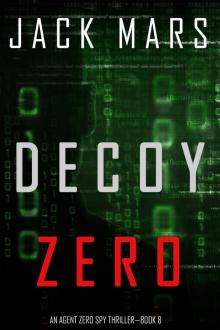 Decoy Zero
Decoy Zero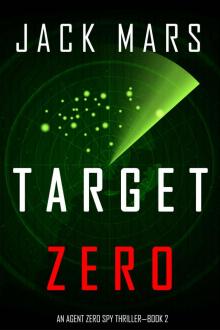 Target Zero
Target Zero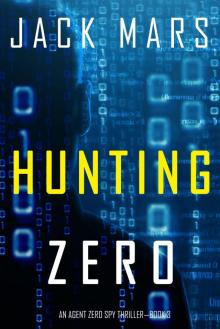 Hunting Zero
Hunting Zero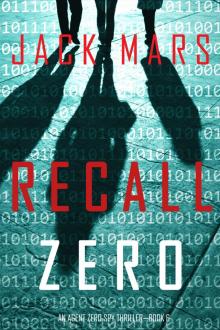 Recall Zero
Recall Zero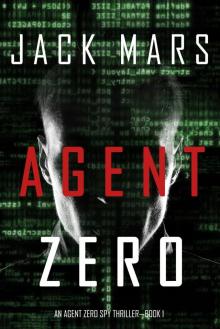 Agent Zero
Agent Zero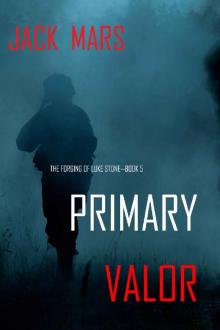 Primary Valor
Primary Valor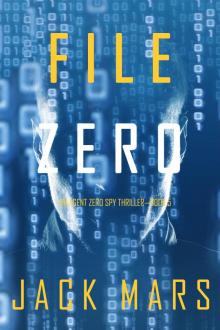 File Zero
File Zero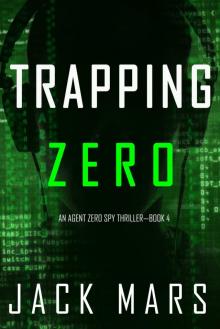 Trapping Zero
Trapping Zero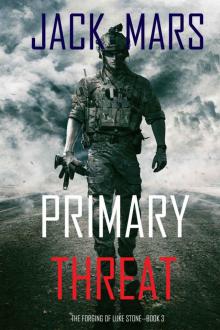 Primary Threat
Primary Threat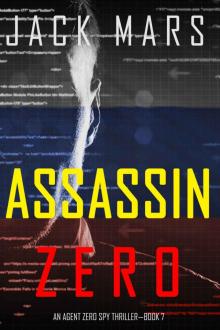 Assassin Zero
Assassin Zero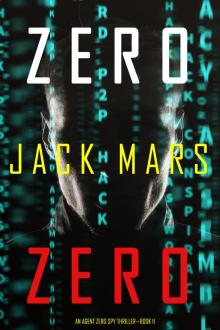 Zero Zero
Zero Zero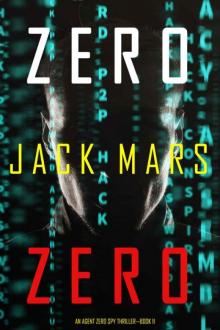 Zero Zero (An Agent Zero Spy Thriller—Book #11)
Zero Zero (An Agent Zero Spy Thriller—Book #11)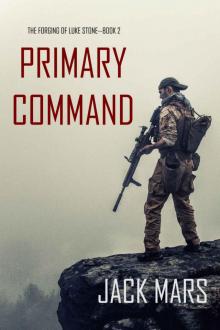 Primary Command
Primary Command![[Luke Stone 02.0] Oath of Office Read online](http://i1.bookreadfree.com/i/03/21/luke_stone_02_0_oath_of_office_preview.jpg) [Luke Stone 02.0] Oath of Office
[Luke Stone 02.0] Oath of Office House Divided
House Divided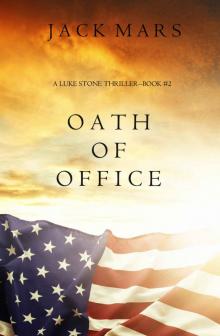 Oath of Office (a Luke Stone Thriller—Book #2)
Oath of Office (a Luke Stone Thriller—Book #2) Our Sacred Honor (A Luke Stone Thriller—Book 6)
Our Sacred Honor (A Luke Stone Thriller—Book 6)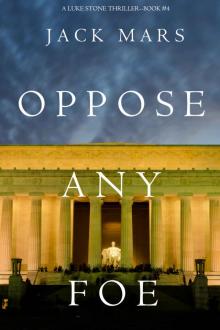 Luke Stone 04 - Oppose Any Foe
Luke Stone 04 - Oppose Any Foe Our Sacred Honor
Our Sacred Honor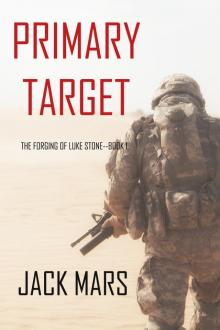 Primary Target
Primary Target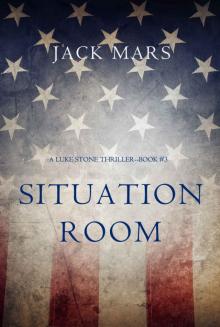 Luke Stone 03 - Situation Room
Luke Stone 03 - Situation Room Any Means Necessary: A Luke Stone Thriller (Book 1)
Any Means Necessary: A Luke Stone Thriller (Book 1)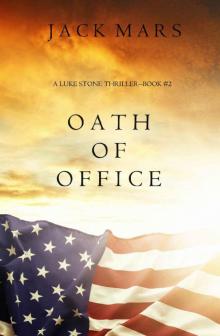 Oath of Office
Oath of Office